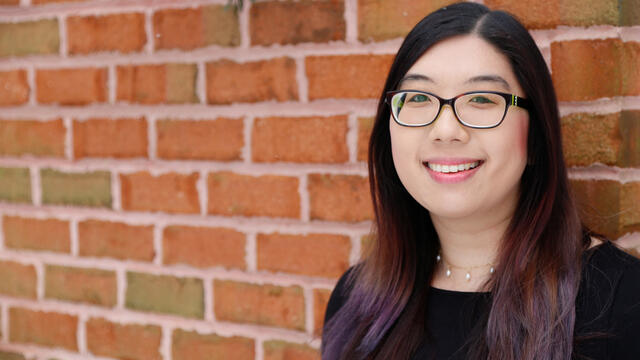The healing power of art fuels alumna’s art therapy practice
As a Studio Art major at McDaniel, Kim Clemens never doubted art would play a leading role in her future. But it wasn’t until graduate school that she discovered her true passion — using her talent to help others with art therapy.

As a Studio Art major at McDaniel, Kim Clemens never doubted art would play a leading role in her future. But it wasn’t until graduate school that she discovered her true passion — using her talent to help others with art therapy.
Clemens was a junior when her mother suggested she look into a career in art therapy. It sounded interesting and involved the art she loved, so she dove into Psychology, Social Work and Sociology courses and declared a minor in Gerontology to satisfy all of the requirements for grad school in Art Therapy and Counseling.
The more she learned while studying for her master’s at Eastern Virginia Medical School, the surer she became that art therapy was her perfect career match.
“I like to call art therapy symbolic speech,” says the 2010 alumnus from Parkville, Md. “Art therapy is a creative and expressive way to explore emotions, relationships, boundaries and functioning using process and product-oriented artistic means.”
Often utilizing art processes or art itself to help aid a client’s transformation and healing journey, Clemens sees individuals, couples, groups and families in her practice at Rogue River Counseling in Annapolis, Md. In Clemens’ practice, therapy might mean walking someone through the process of paper making, creating maps or charts, being creative with masks or working on a technical drawing — and sometimes she does art therapy projective imagery assessments which involve understanding the client’s intention and how they see their art work.
During her eight years in practice, Clemens has worked with military veterans, clients with chronic and persistent mental health disorders like schizophrenia and bipolar disorders, children and adolescents with sexual offenses and clients with addictions.
“While I treat a variety of mental health issues, my passions lie in attachment and trauma informed care related to addictions ranging from substance abuse to sex, pornography and love addictions,” she says.
Her commitment to helping people goes all the way back to her childhood. After her grandfather died when she was in second grade, Clemens started volunteering at a retirement community, eventually working with residents in assisted living with severe dementia and Alzheimer’s throughout high school. She continued with an internship at Carroll Lutheran Village while a student at McDaniel.
Today, that dedication continues to thrive.
“The best part about my work is devoting time and care to hearing and seeing someone perhaps become vulnerable for the first time with another human being, and work towards long term recovery,” Clemens says. “Seeing them undergo a transformation from a place of pain to experiencing joy and light.”
At McDaniel, Clemens seized every opportunity — getting involved with activities, clubs and honor societies, volunteering in the local community and completing several internships. She advises freshmen to leap into campus life and connect with students, professors and alumni right from day one.
The Hill made a huge difference in her life, Clemens says. She had never been far from home before and was embarking on a true personal journey that was scary and overwhelming. After the first day of orientation, she called home and told her parents she was never going to make friends.
“I walked in as a painfully shy and awkward freshman,” she says. “And I walked across the stage four years later as a social, more confident, multi-talented leader.”